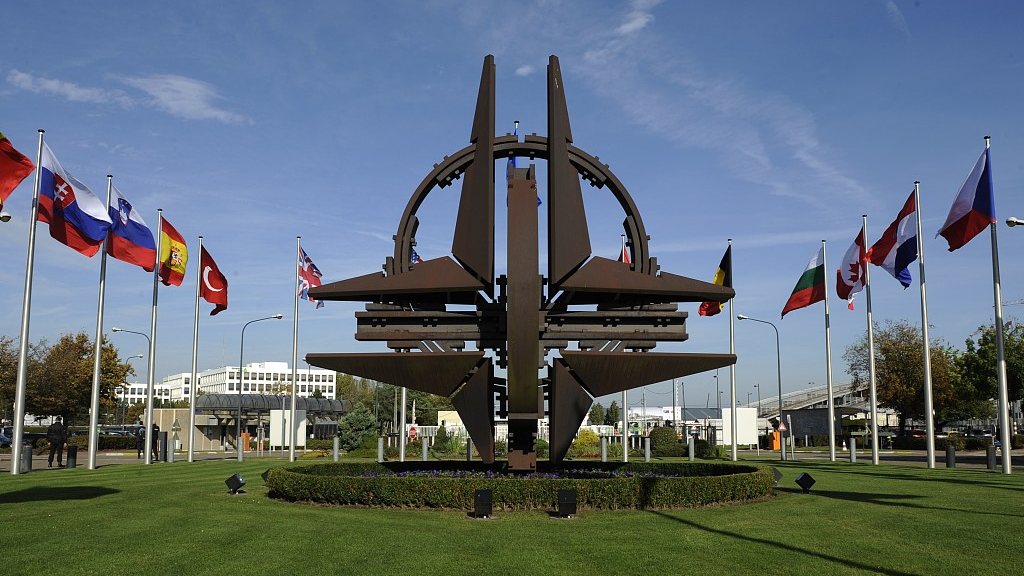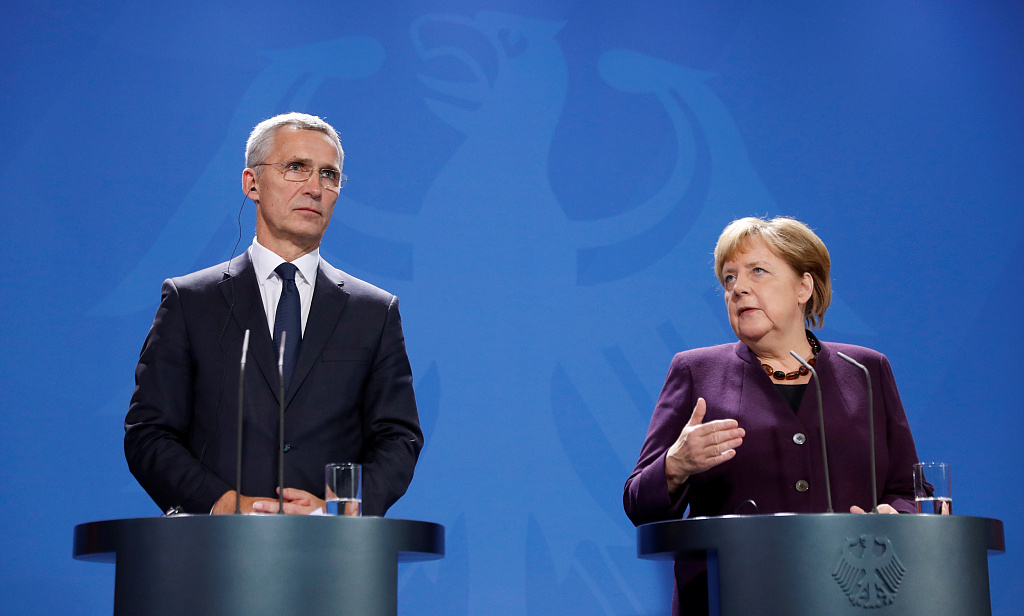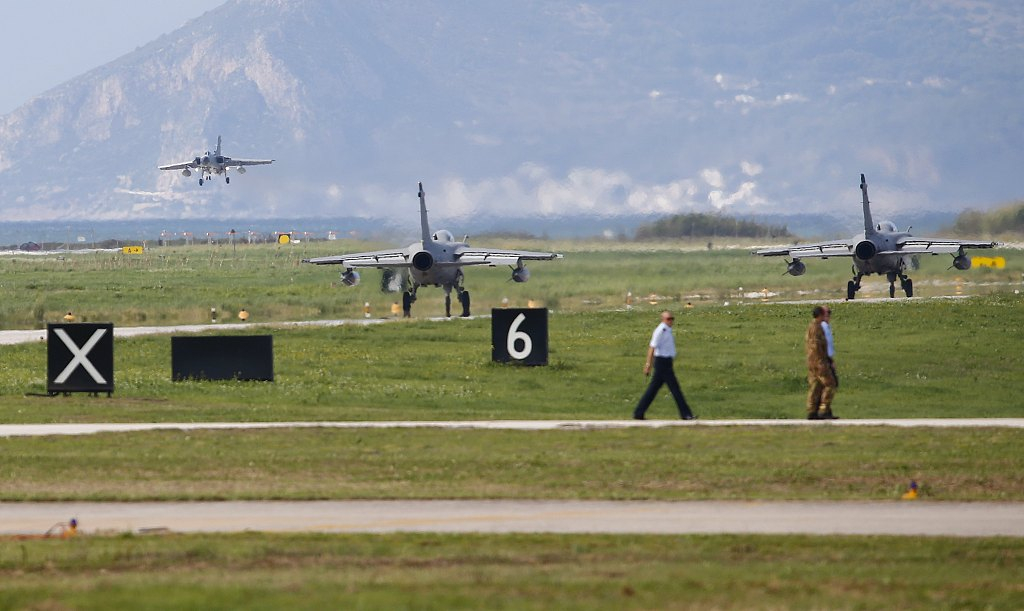
Editor's note: Huang Jiyuan is an opinion editor with CGTN Digital. The article reflects the author’s opinions, and not necessarily the views of CGTN.
NATO has acquired many adjectives in the last 48 hours.
It began with French President Emmanuel Macron calling NATO "brain dead". Maria Zakharova, spokeswoman of Russian Ministry of Foreign Affairs, hailed Macron's assessment as "golden words." While German Chancellor Angela Merkel claimed it to be too drastic, and Secretary General of NATO Jens Stoltenberg insisted that the organization is "important, critical." U.S. Secretary of State Mike Pompeo echoed Merkel and Stoltenberg's words with a warning that "one of the most important" military alliance "in all recorded history" could become "ineffective or obsolete."
Maybe that's one too many adjectives.
When something can be described as both irrelevant and indispensable, you can be sure the description isn't on point. With the use of exaggerated phrases, politicians are ignoring what's really causing the alliance to tumble, and that is public sentiment. The fundamental creed that "an attack against one ally is considered an attack against all allies" has been waning.
A YouGov poll conducted in 2019 found that Europeans are committed to the idea of coming to their allies' defense, except when specific countries' names are mentioned. For example, a majority of French and German do not want to defend Turkey and Romania. Only 32 percent of German would defend the U.S. while 42 percent object to it. When the commitment for the entire alliance to protect one country becomes a commitment depending on which country has been attacked, the alliance, in fact, is no longer legitimate.

German Chancellor Angela Merkel rebuked French President Emmanuel Macron's remarks claiming NATO is "brain dead", and NATO Secretary General Jens Stoltenberg, at a press conference. /VCG Photo
German Chancellor Angela Merkel rebuked French President Emmanuel Macron's remarks claiming NATO is "brain dead", and NATO Secretary General Jens Stoltenberg, at a press conference. /VCG Photo
The same poll shows that within the last two years, European's opinion on NATO's importance dropped significantly. French, German, and British all saw a near 10 percent drop in their support for NATO.
Americans are lukewarm about the organization as well. In a Gallup poll, six percent of Americans want to leave NATO, 16 percent want to decrease U.S. involvement, while 57 percent want to keep the involvement at the same level. Keeping it at the same level would only mean that the public support in Europe would be allowed to drop further.
In electoral politics, public opinion is the force behind policy directions. When people no longer commit to the organization's purpose, politicians wouldn't be able to resuscitate it. Especially, at the current moment, NATO isn't providing them with enough confidence to believe in it.
NATO was created on the premise of protecting Europe. However, since the end of the Cold War, NATO has evolved beyond a security alliance, and has become responsible for being a geopolitical symbol for the West, for peacekeeping, for initiating wars when they were blocked by the United Nations. There are just too many titles the organization is assuming, and the organization is spread too thin.

NATO was built with a specific adversary in mind. Now, it has too many responsibilities and roles to play. /VCG Photo
NATO was built with a specific adversary in mind. Now, it has too many responsibilities and roles to play. /VCG Photo
Also, it was reported by European Council on Foreign Relations that around 40 percent of young voters in Europe worry about potential conflict breaking out between member states within a decade. When they are already afraid of a potential conflict, government shouldn't be giving the fear anymore ammunition.
And yet, that's exactly what the government has been doing. First of all, Europe's reliance on Russian gas supply isn't comforting in an age when Russian skepticism is reaching new heights.
Secondly, when Europe attempted to stop Turkey's military operation in Syria in fear of creating more instability, President Erdogan told the Europeans to stop or he will allow millions of refugees to pass into Europe. What is the real security threat to Europe? The situation in Syria? Refugees? Or Turkey, one of the most important members in NATO?
NATO's performance as the guardian of peace on the European continent isn't helpful to its own survival. Yet, the fact that it has just sent its first counter-hybrid warfare team to Montenegro when most of the world are still trying to figure out what this warfare is shows that it is far from "brain dead."
So, what is NATO? This is the real question that needs to be answered. The answer shouldn't be a bunch of immaterial adjectives, but a solid commitment to what the organization's true design is, and NATO needs to act on it.
(If you want to contribute and have specific expertise, please contact us at opinions@cgtn.com.)